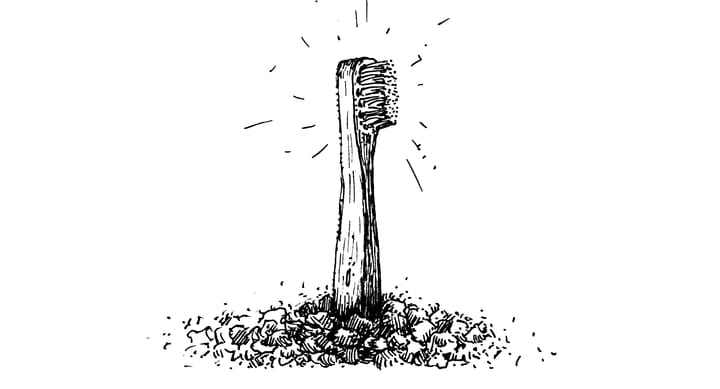Museum misfit
Animal impressions, chess addiction and meaningful work – trying to be an upstanding museum worker, with mixed results

“Okay, do a horse,” said Aaron, the first interviewer. The best whinny I could muster fell a touch flat after my mosquito, which had clearly impressed them.
“Okay, how about a… helicopter?”
“Erm… tocka tocka tocka tock… a.” Just passable, but enough to progress.
“What do you think qualifies you for a position as a host here at the museum?” asked Fiona, the second interviewer.
“Well, I already have experience teaching in Japan. I’d like to go on and teach high school one day.” Mentioning a different future job here might have been a misstep. Perhaps it would have been better to say I was looking for meaningful work, a sense of worth from teaching others. At least I knew better than to say, “I just desperately need some paid work.”
We finished up and got to handshakes. Fiona went all in on her grip, overpowering my soft-medium squeeze, so I applied an iron vice to Aaron’s knuckles, which cracked like marbles in a bag.
“Oh wow, that’s quite the shake,” Aaron said, wincing.
“Oh, ah, sorry. Fiona outgripped me,” I said. No one knows how to shake hands, least not me.
They offered me the job later that day.
Aaron was the boss on paper, but Fiona was the real boss. This was just as well, since Aaron seemed to be away a lot, mostly at home looking after his cat, which was either exceptionally sick or needy – at any rate, more important than his director job.
Breaks and shifts were timed to the second. I became a chronic clock watcher, cowed by the second hands smashing through. Time just never let up.
I shared many of my break slots with Claire. She was a talker.
“My boyfriend and I like to pretend we’re inexperienced lovers and gnash our teeth together when we kiss,” she told me on my first day.
The job was to look after areas of the museum set up specifically for children. There was joy in the work, if you were open to it. On weekend mornings I’d host birthday parties for younger kids; based on the desired theme, I’d don fairy wings or a pirate hat and be an entertainer for an hour. I have written feedback evidence that I was pretty good at this side of the job. In the nature area, kids would shriek with delight as they piled into the replica whale heart. These spaces had no “Do not touch” signs, which was a relief for parents anxious about their little one sticking a pencil through a Colin McCahon.
But cynicism crept in. I felt like a glorified security guard in a garish red shirt. I’d tidy up the mess, over and over. I'd tell people where the toilets were. There were vast canyons of time when no one was around, followed by flash floods of school holiday activity, which would subside quickly, leaving only the debris. It was all or nothing. I preferred the nothing. I tried to be upbeat when people asked about the giant squid – but to me it looked like a shrivelled piece of stitched-up jerky.
Like most jobs, it was what you make it – but mostly I didn’t make it all that much.
The factory-shift nature of the breaks and changeovers ground me down. You’d just get to the staffroom and then you’d have to leave again. There were passive-aggressive standoffs if you relieved someone of their shift late, or vice versa. After talking to strangers for hours you’d try to get a bit of quiet, and then Claire would sit down beside you.
“We don’t use towels,” Claire would say. “We put our clothes on straight out of the shower.”
There was a computer at each post. I think they were for helping with visitor enquiries. The meaningful work. I started using them to play online chess, which was a double waste: neither the job nor the chess received my full attention, and I didn’t improve at either.
“Excuse me, where’s the cafe?” someone would ask.
“One moment. I’m in check.”
I was flawed, but at least I turned up. (An antihero? No, that’s too charitable.) Other workers would suddenly fall sick on Saturday and Sunday mornings. One left a message at 2am on a Sunday proclaiming dire illness, with the sounds of a house party pulsing in the background.
They took away the internet, eventually. It’s possible they worked out that one guy was playing a level of online chess not required for basic duties. But it’s more likely they noticed everyone else was on Facebook.
Now what would we do to fill the void? How would we distract ourselves from the music-mixing machine on level three, which played refrains from the Fat Freddy’s Drop song “Roady”, again and again and again...
The regret when you leave seems inescapable, no matter what the job. You’re quitting, which casts an unfavourable light. The rest of the squad feels aggrieved; that your decision to leave devalues theirs to stay.
It wasn’t until my last day that I realised “It’s what you make it” means I am the one who should make the work meaningful, not the other way around. It’s about the ethos I bring to the job. And my ethos really needs some work.
I’m sure you’ll make a better go of it than me, fellow museum workers. In spite of no internet. And that song on an infinite loop.



Comments ()